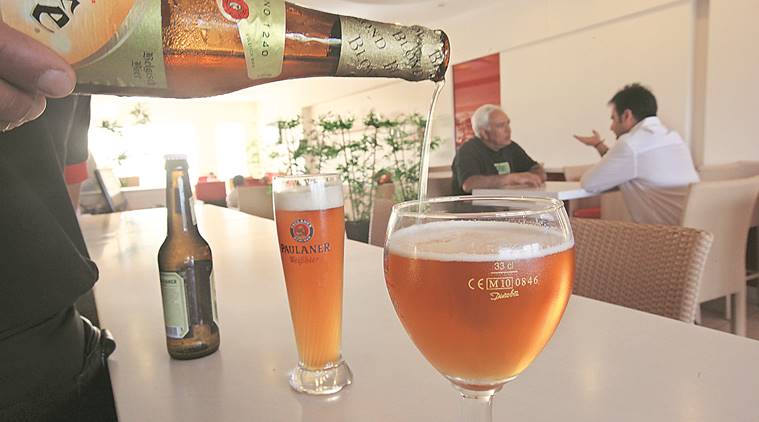
Here is some heady news for lovers of draught beer. The UT Administration has slashed the excise duty on microbreweries from Rs 50 per bulk litre to Rs 30. The new excise policy for 2019-20 unveiled on Friday seeks to promote beverages with low alcoholic content by scaling down the prices of beer and wine while increasing the price of countrymade liquor and Indian Made Foreign Liquor. It also makes it mandatory for all bars and restaurants to install alcometers. In another reform, licensing units will now be allotted through e-tendering.
With these levies, the administration hopes to increase its revenue by 18 per cent from Rs 510 crore last year to around Rs 600 crore in the coming year. It will be mandatory for all the retail licensees to issue an invoice on sale of liquor.
Bacchus lovers will have to shell out more for their daily high with the administration hiking the excise duty on countrymade liquor by 17 per cent and on IMFL by 20 per cent. Satya Pal, president of Wine Merchants Association, said the increase in excise will be passed on to the consumers. “A bottle of Blenders Pride or Signature, which used to cost around Rs 600, will now cost around Rs 700 to Rs 710. Similarly, the price of Royal Stag or Royal Challenge will go up from Rs 380 to Rs 450.”
In a bid to to boost the Indian wine industry, the license fee has not been increased and kept at Rs 12,000 for the whole year. Further, the label registration fee of wine has been reduced from Rs 15,000 per brand to Rs 10,000.
Boost for microbreweries
The excise duty on microbreweries has also been reduced from Rs 50 per bulk litre to Rs 30 to wean the consumers away from hard liquor to soft liquor. The licence fees of microbreweries, restaurants, pubs and bars has also not been increased from the last year. To promote sale of imported wine, Indian wine, ready to drink (RTD) and imported beer, the licence fee of the licence L-2D for shops/establishments registered under Goods and Service Tax Act, 2017, remains unchanged at Rs 2 lakh.
Liquor vend owners stated that not much change would be observed in the wine rates and relaxations will only encourage more varieties of wine.
In a step aimed at safe drinking, the new policy mandates alcometers for establishments selling liquor. “Alcometers for voluntary assessment of alcohol level by consumers, have been made mandatory for all hotels and restaurants serving liquor,” the draft of the policy states.
But M P S Chawla, a hotelier, said, “We have already installed alcometers as per the administration’s recommendations earlier, but no one uses them. We have it at our reception and they remain unused.”
For the first time in UT, the allotment of licensing units will be made through e-tendering system for more transparency. The administration will also use an online system for issuance of permit/passes to facilitate trade and industry.
Also, the number of licensing units (CL/IMFL) has been increased from 88 to 98. To curb the menace of cartelisation and monopolistic practices, a single person or entity will be allotted a maximum of 10 vends only.
Biz made easy
In terms of ease of doing business, the conditions of security amount at the time of allotment have been relaxed from 25 per cent to 20 per cent and the payment of monthly licence fee instalments has also been increased from eight to 10 instalments.
A senior official of the UT excise and taxation department said the basic quota of IMFL has been increased from 90 lakh PL to 100 lakh PL whereas basic quota of country liquor of 10 lakh PL has been reduced to 4 lakh PL with 20 per cent conversion into IMFL.
In a first, quota of Foreign Liquor (Bio Brand Whisky) has been fixed at 4 lakh PL with 20 per cent conversion into IMFL to curb smuggling of liquor and to plug evasion of revenue.
To promote sale of liquor through department stores, there is no change in the licence fee of Rs 20 lakh for department stores. However, the quota which was a major constraint of department stores has been reduced from 5,000 PL to 3,000 PL.